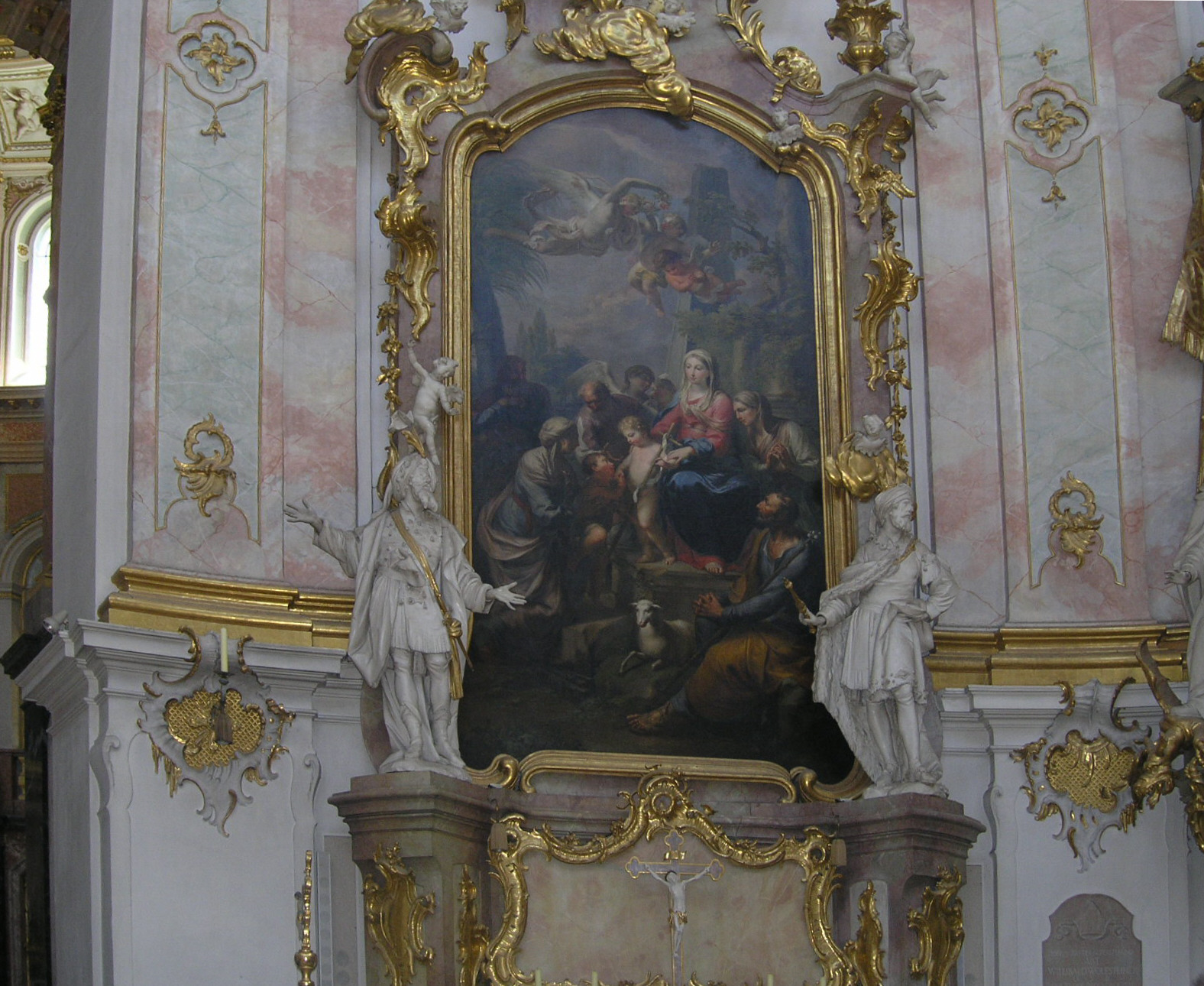- Johann Baptist Straub
Johann Baptist Straub (*
1 June 1704 (baptism) inWiesensteig ; †15 July 1784 inMunich ) was an important GermanRococo sculptor.Straub came from a family of sculptors. His father Johann George Straub and his brothers Philipp Jakob, Joseph, and Johann Georg Straub were also sculptors, as was his nephew
Franz Xaver Messerschmidt . J. B. Straub studied in Munich with the court sculptor Gabriel Luidl and then went to Vienna, where he worked from 1726 to 1734.In 1734 Straub returned to Munich. In 1737 he was appointed by Elector Karl Albrecht from Bavaria as the court sculptor. In the same year Straub married a daughter of the court engraver, Franz Xaver Späth.
Straub worked primarily in Upper Bavarian churches and monasteries, frequently alongside some of the greatest Baroque artists of the day: the architect
Johann Michael Fischer , the painterJohann Baptist Zimmermann , theAsam Brothers , the Tyrolian painterJohann Jacob Zeiller , and the stuccoists Franz Xaver andJohann Michael Feuchtmayer , among others. Usually Straub's figures are carved in simple white, with very little gold trim.Important works by Straub are in the Residenz in Munich as well as in Schloss Nymphenburg. His best-known church works are the altars of the monastic churches of Andechs and Schäftlarn as well as St. Michael's Church in
Berg am Laim , a borough of Munich.Straub's workshop was the most important of its day in Munich. The most famous artist to study there was
Ignaz Günther .Major Works
thumb|right|250px|One_of_the_side_altars_at_Ettal Abbey ]Austria
*
Laxenburg —Schwarzspanierkirche Wien (pulpit) (1730)Bavaria
*
Altomünster —Brigittine Monastery Church (altars in the lay nave, figures of apostles, upper high altar, altars in the choir) (1765–1769)
*Andechs —Pilgrimage Church of the Annunciation (altars, figures of St. Elisabeth von Thüringen and St. Nicholas) (1750)
*Bichl —Parish Church of St. George (high altar) (1752)
*Dießen am Ammersee —Church of St. Maria (side altars and pulpit) (1739–1741)
*Ettal —Benedictine Monastery Church (pulpit and side altars) (1757–1765)
*Fürstenzell —Cistercian Monastery Church of the Ascension of the Blessed Virgin (altar and tabernacle) (1741)
*Munich —Franciscan Monastery Church of St. Anna im Lehel (high altar tabernacle and pulpit) (1738–1739)
*Munich —Dreifaltigkeitskirche (tabernacle relief) (1760)
*Munich —Parish Church of St. Michael (high altar and side altars) (1743)
*Munich —St. George in Bogenhausen (high altar) (1770–1773)
*Oberaudorf —Kloster Reisach (side altars) (1748–1757)
*Polling—Kloster Polling (high altar renovation) (1763)
*Schäftlarn —Premonstratensian Monastery (pulpits and altars) (1755–1764)
*Steingaden —Premonstratensian Monastery Church of St. John the Baptist (figures of founders on the pillars of the high altar) (1740)More Information
*
Wikimedia Foundation. 2010.

